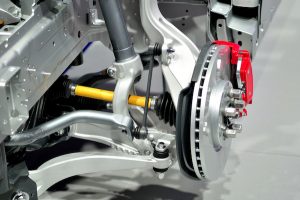Have you ever thought about how much you rely on your car? You expect it to work when you leave your home each morning. You expect it to keep running as you move throughout your busy day. You expect it to start and run no matter what the temperature is like outside, whether it’s the hottest day of the summer, or the coldest day of the winter.
Here in Colorado, the variances can be stark. One minute warm and sunny, followed by a whirlwind storm that brings in rain, or even snow. Is your car up for the challenge?
If you’ve ever turned the key and nothing’s happened, you know how annoying that can be. Yes, it can cause you to be late to work. But what if you’re in the middle of unfamiliar territory, and it’s late at night with no one around? It can be downright dangerous.
Do you know the signs your car needs a new battery? If so, this whole scenario could have been avoided. Because batteries rarely fail without a little warning. They have their own unique ways of saying: something is wrong. And if you watch for it, notice it, prepare for it, you can avoid being stuck without a plan.
Slow Engine Crank
When your battery was new, one quick turn of the key had your engine popping into life. The older your battery gets, the longer this process seems to take. When you attempt to start your vehicle, the engine cranks to life with sluggish movements. If you notice this happening on a regular basis, don’t ignore this warning sign.
Clicking Sound When You Turn The Key
Every time you turn the key, your car battery sends power throughout the electrical system. This is designed to get everything going, ready to keep your car functional while you drive. It’s like a burst to the system to power everything up, before turning to a stable current to keeping everything functional. A failing battery will have trouble with this task. The electrical current will send a weaker signal, causing a clicking sound because of insufficient power.
Dim Headlights
In addition to turning your engine over, the battery also powers the electronic features of your car. If you’re traveling down a familiar lane at night and start to think your headlights aren’t doing the job they once did, it could be your battery. If the battery isn’t producing a full charge, all components of your vehicle will weaken over time.
Check Engine Light
Sometimes the check engine light will fire up and stay lit as you drive away. Without full power running through the system, this is your car’s way of saying something is wrong.
Swelling Battery Case
Open up the hood from time to time and take a look inside. Find the batter case; how does it look? Heat build up can cause the case to swell and bloat. Car batteries also have a translucent section so you can peer inside and see the battery fluid level. Does it appear to be in good condition? Does the fluid seem to be low? Is fluid leaking? If it doesn’t look right, your next stop should be to have it looked at.
Backfiring
When a battery is failing, it can sometimes cause intermittent sparks. These sporadic sparks can lead to a buildup of fuel in the cylinders, and when this fuel ignites, the increased force causes your car to backfire. Backfiring can be caused by several things, not just a failing battery, so it’s important for a service technician to fully evaluate your vehicle to determine the root cause.
Age
How old is your car’s battery? In most cases, a car battery will last anywhere from two to five years. The older your battery is, the more you should consider purchasing a new one, especially if you’ve had other problems described above.
Still have questions about your car battery? Here are a few we answer quite frequently.
Why does the battery drain overnight?
Your car’s battery works fine – until you start the car up again the next morning. What can cause the battery to drain in just a few short hours? In most cases, it’s the car light being left on overnight, or a power adapter plugged in and working throughout the night. Of course, your battery can also drain if there’s a problem with the electrical wiring. If that’s the case, your car needs servicing sooner rather than later.
What shortens the life of a battery?
In a perfect world, your battery will last according to manufacturer’s guidelines. Of course, rarely does your battery lead a perfect life. Several things can shorten a battery’s life, including:
Short trips – those start/stop trips to the grocery store, drop the kids at school, or pick up the dry cleaning, hurt your battery. It doesn’t have proper time to fully charge.
Extreme temperature – Colorado is known for 30, 40, 50 degree drops or more in just a few hours. When temperatures move towards the 100s, or fall well below freezing, something into the negatives, it’s a drain on your battery.
Can a battery put off a pungent smell?
Yes. If you notice a stinky, rotten egg smell, especially when you open up the hood and get closer to your battery, it could be failing. This is caused when the battery leaks. If your battery is leaking, you’ll also notice corrosion around the two posts – where the + and – cable connections are located. This needs to be cleaned away for your battery to continue operating. It’s also a sign that something is wrong with the connections. Your best course of action is to have a service technician check it out.
Can a jump solve the problem?
It’s always a good idea to carry jumper cables with you at all times. If your car dies, a jump may give you the energy you need to make it safely into our shop. However, a dead battery is a sign of a weakening battery. A jump isn’t meant to put life back into your battery and have you ignore the situation. It gives you a chance to service your vehicle before other situations arise.
If you have questions about your battery, your engine, your starting system, or anything else with your vehicle, the best step to take is to make an appointment today.
It’s better to drive in under your terms, rather than having to tow your vehicle in for emergency repair.

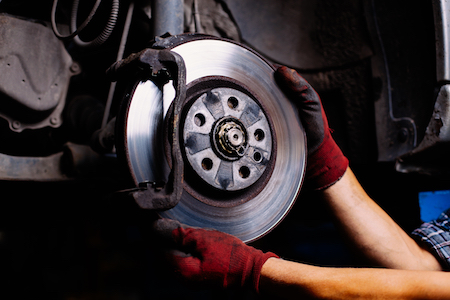
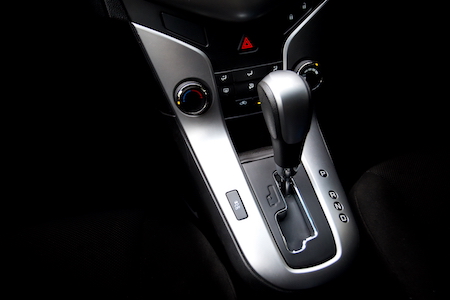
 Fuel, whether gasoline or diesel, is delivered to your engine to be burned in order to generate the power needed to keep you moving. This fuel leaves a residue as it moves through your fuel system. This may not seem like much, but it can cause big problems. Gum and varnish build up inside fuel lines, the throttle body and injectors. It’s like plaque build-up in your arteries – it restricts the free flow of fuel and can even clog your fuel injectors.
Fuel, whether gasoline or diesel, is delivered to your engine to be burned in order to generate the power needed to keep you moving. This fuel leaves a residue as it moves through your fuel system. This may not seem like much, but it can cause big problems. Gum and varnish build up inside fuel lines, the throttle body and injectors. It’s like plaque build-up in your arteries – it restricts the free flow of fuel and can even clog your fuel injectors.
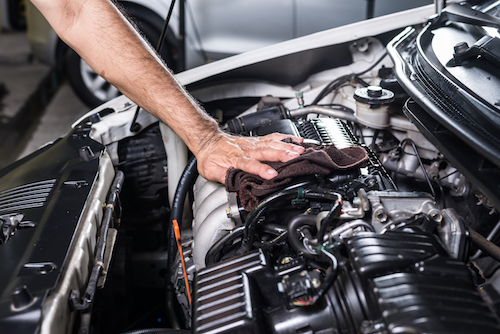
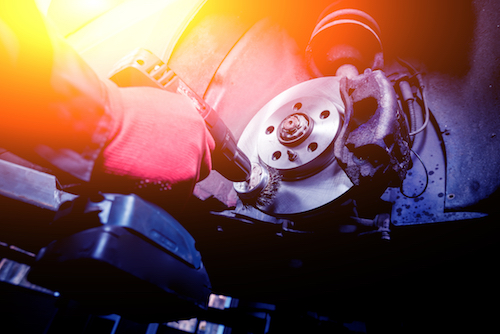
 We know we need to take care of our cars, but it just seems too hard to remember to do it. We generally accept that there are many things in life that require regular maintenance, but we just may not have applied it to our vehicles yet.
We know we need to take care of our cars, but it just seems too hard to remember to do it. We generally accept that there are many things in life that require regular maintenance, but we just may not have applied it to our vehicles yet.